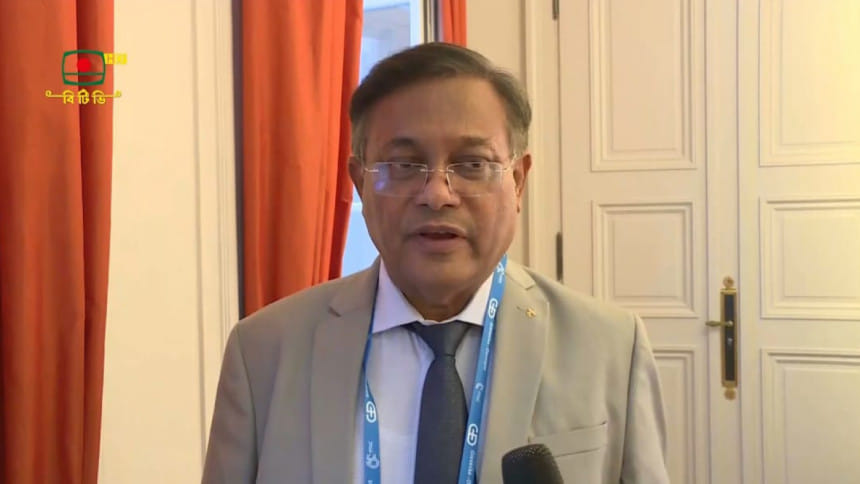India willing to finance Teesta project here
India has expressed interest in financing Bangladesh’s Teesta project, Foreign Minister Hasan Mahmud said after a meeting with Indian Foreign Secretary Vinay Mohan Kwatra yesterday.
“You know we have taken up a big project on Teesta. India wants to finance this project. It will have to be implemented in line with our needs. We want to see that our needs get fulfilled,” Hasan told reporters at his ministry, reports UNB.
Asked about China’s interest in funding the “Teesta River Comprehensive Management and Restoration Project”, Hasan said they discussed the issue of India’s interest in financing the project, not of other countries.
The foreign minister stressed on early conclusion of Teesta Water-Sharing Treaty and renewal of Ganges Water-Sharing Treaty, which was signed in 1996. That is the only water-sharing treaty with India, though the two countries have 54 transboundary rivers.
India’s interest in financing the Teesta project bears significance as it has been an issue of strain in the bilateral relations. In 2011, Bangladesh and India failed to sign the Teesta water-sharing agreement due to West Bengal Chief Minister Mamata Banerjee’s last-minute opposition during the then Indian prime minister Manmohan Singh’s visit to Dhaka.
Because of surface water shortage, farmers in Bangladesh’s northern region depend heavily on underground water for irrigation, which is not sufficient at times.
Meanwhile, in 2020, Bangladesh’s Water Resources Ministry wrote to the Economic Relations Division seeking a $983.27 million loan from China to implement the Teesta project that includes river dredging, creating reservoirs, and building townships along the river.
On October 13, 2022, then Chinese ambassador to Bangladesh Li Jiming at a seminar in Dhaka said China was serious about implementing the project, but also had a sense of reluctance due to sensitive issues surrounding it.
The visit of Kwatra, who arrived in Dhaka on Wednesday evening and left yesterday afternoon, was viewed mostly as the preparation for the possible visit of Prime Minister Sheikh Hasina to India.
Diplomatic sources said Dhaka and Delhi were discussing two sets of dates — one is in late June and the other early July. The prime minister is also likely to visit China after her India tour.
Asked about it, the foreign minister said the premier will definitely visit India. The elections are underway in India and the new government will be formed after the polls and then the date will be finalised.
In reply to a query whether the PM will go to India or China first, he smiled and said, “Delhi is close to Bangladesh in terms of geographical distance.”
The last bilateral engagement between Hasina and her Indian counterpart Narendra Modi took place during the G-20 summit held in India in September last year.
India is expected to invite South Asian and BIMSTEC country leaders to the swearing-in ceremony of its newly elected prime minister.
Regarding border killings, Hasan said there is no deficit of willingness at the government and political levels to end the killings. “We have discussed the issue in details. We have laid emphasis on the use of non-lethal weapons.”
He said Indian Border Security Force has been instructed and it is using non-lethal weapons following the instructions.
Hasan said they also discussed connectivity that saw a significant improvement in the last decade. India now has better access to its northeastern states.
He said they have discussed cooperation from India to import hydropower from Nepal and Bhutan through India.
Hasan and his Indian counterpart also discussed ways to further ease visa regime so that people can move freely, strengthening people-to-people relations.
Indian Foreign Secretary Kwatra also held a meeting with his Bangladesh counterpart Masud Bin Momen, and the focus was on bilateral issues, regional cooperation, and exploring avenues for future collaboration, according to a foreign ministry statement.
“They also discussed cooperation in the areas of green energy, digital economy, and technology space.”
Momen emphasised on power sector cooperation, connectivity, enhancing Bangladesh’s export to India, cooperation in regional, and international platforms and support for Rohingya repatriation.
LondonGBDESK//



Comments are closed.